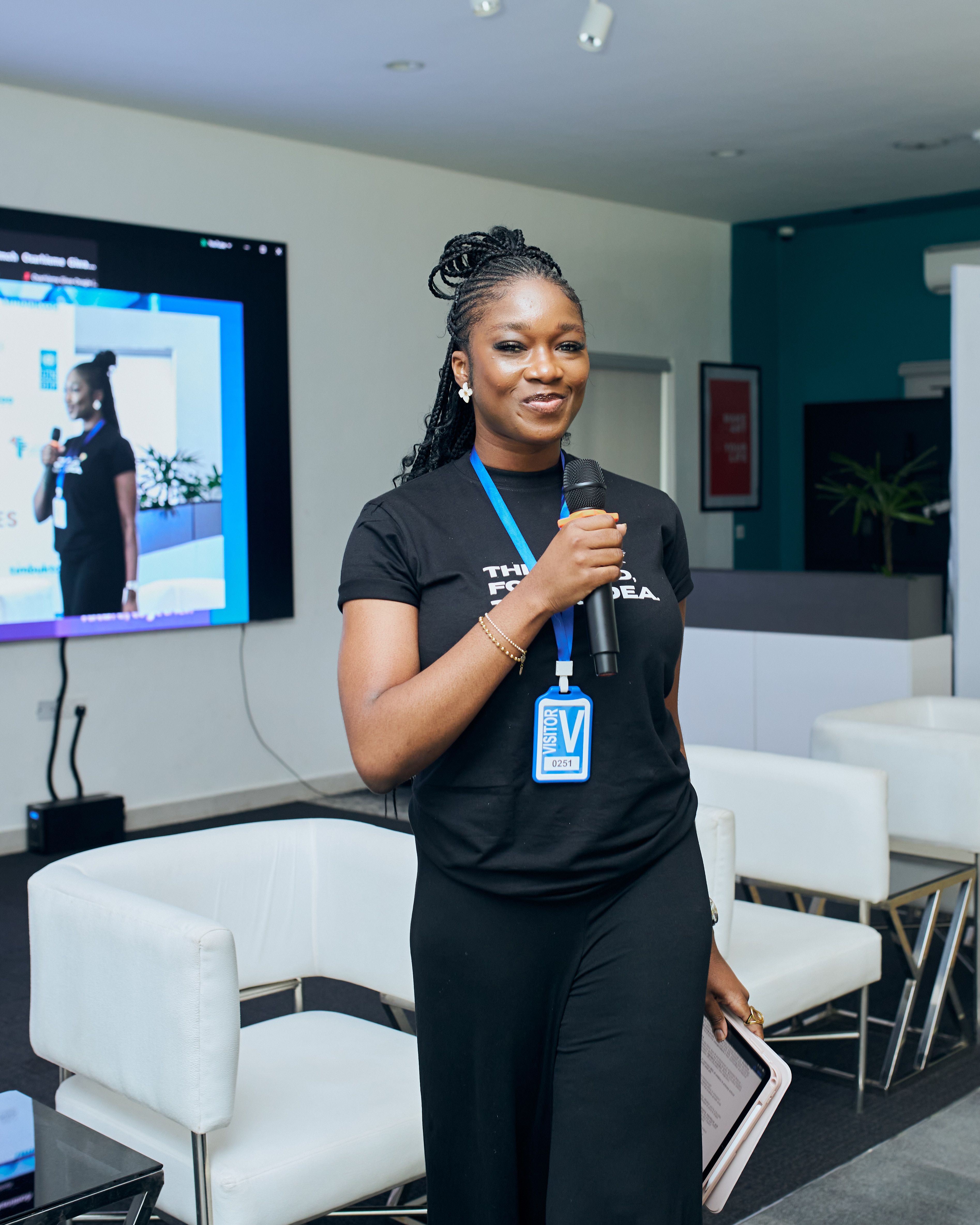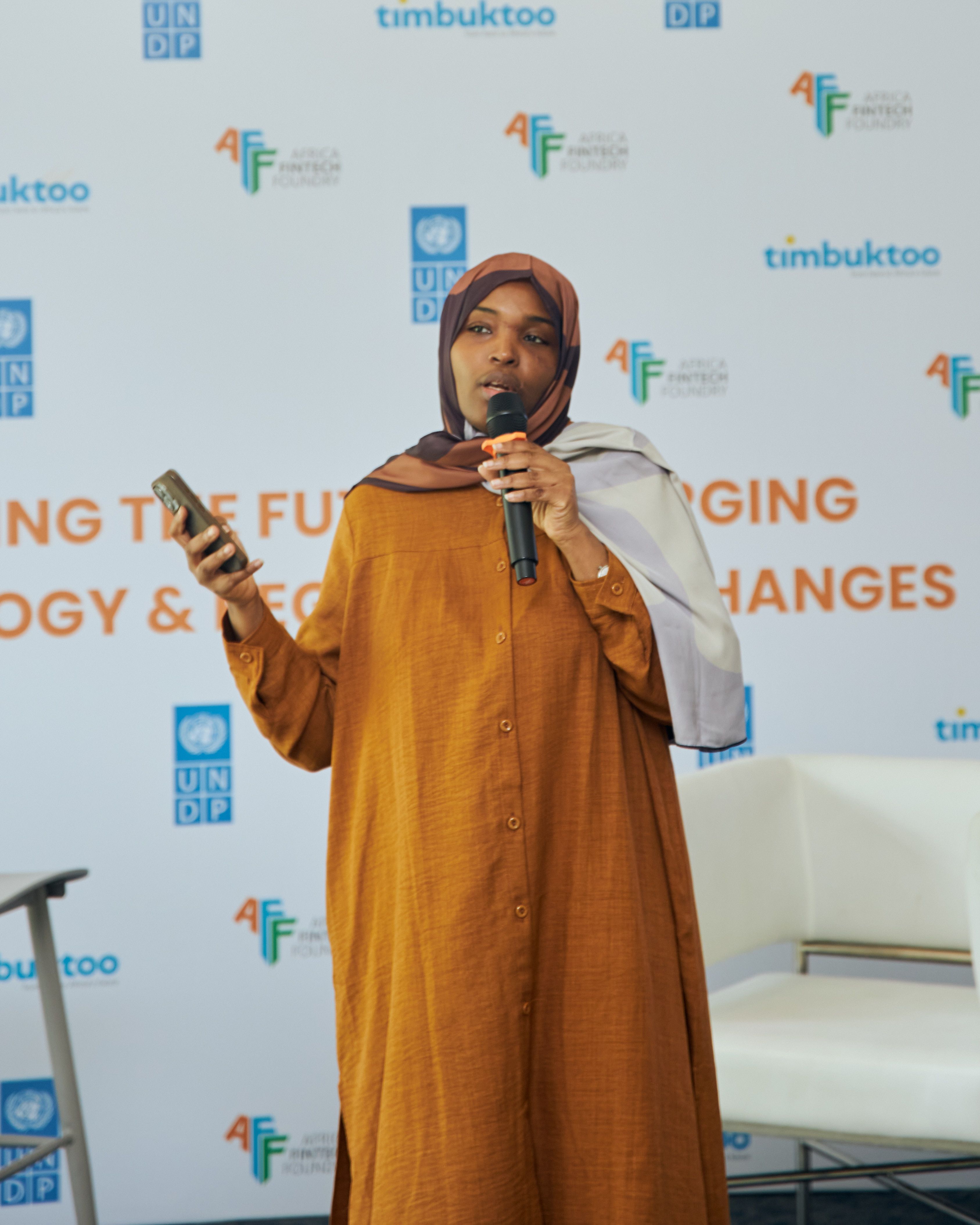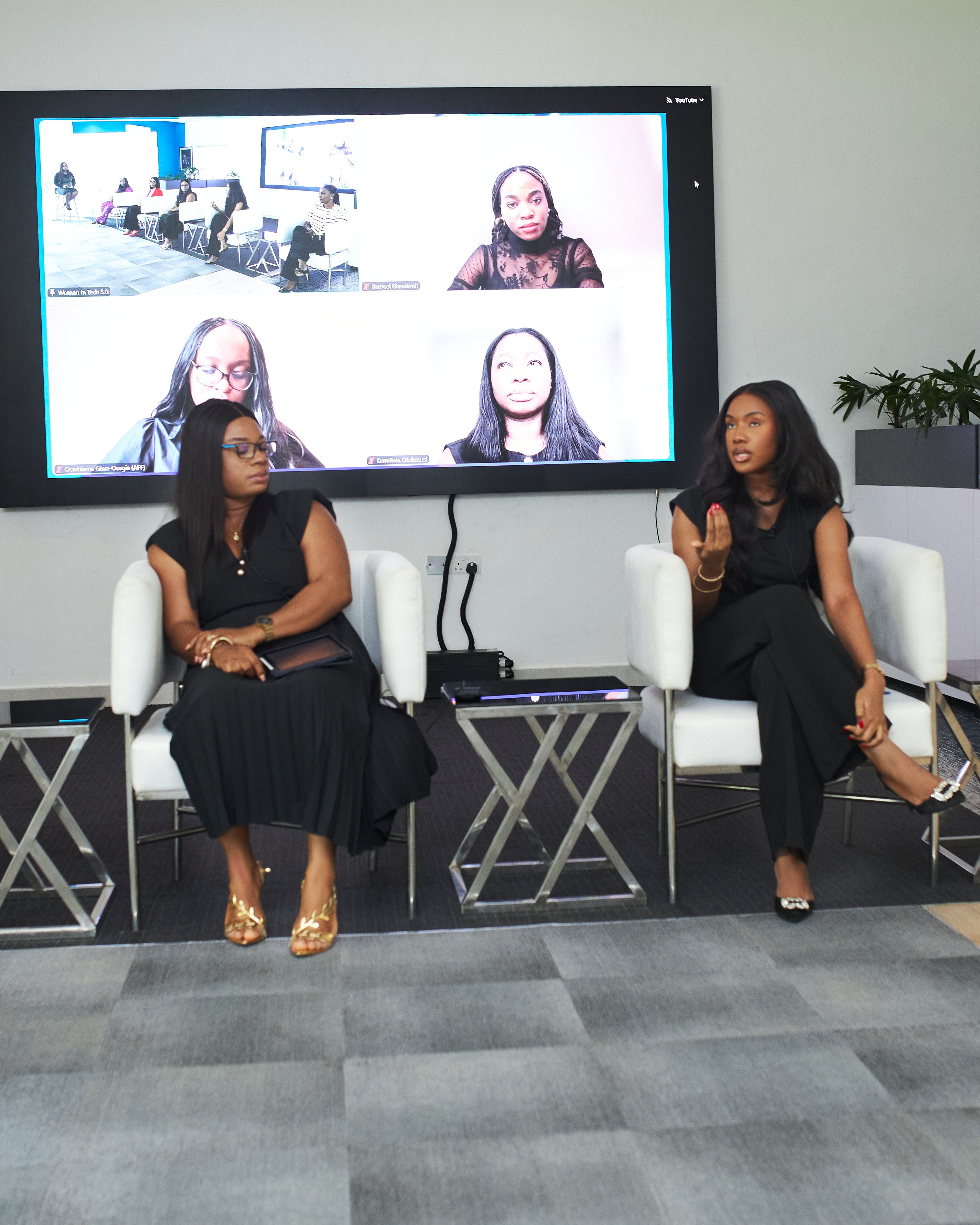Women In Tech 5.0
Shaping the Future: Emerging Technologies and Regulation

Women in Tech 5.0: Shaping the Future: Emerging Technologies and Regulation
Innovation and regulation — two words that often seem like oil and water. Yet, on July 25, 2025, the Women in Tech 5.0 event brought together innovators, legal experts, entrepreneurs, and policymakers to explore how the two can complement rather than conflict with each other.
With the theme “Shaping the Future: Emerging Technologies and Regulatory Changes,” the event went beyond conversation — it served as a catalyst for building an inclusive and resilient African tech ecosystem where innovation thrives in parallel with evolving regulation. This 5th edition was hosted in collaboration with the United Nations Development Programme (UNDP) as part of the timbuktoo Fintech Hub initiatives.
A Powerful Start
The event opened with a warm and inspiring welcome address from Thelma Ohue, Lead of the Engineering Team at Africa Fintech Foundry.
In her remarks, Thelma emphasized that Women in Tech is more than an event, it is a movement that reflects Africa Fintech Foundry’s deep commitment to empowering women across Africa’s innovation landscape. She reminded the audience that technology is not just about code and products, but about people and ensuring women are given equal opportunity to lead, innovate, and shape the future.
She highlighted Africa Fintech Foundry’s vision to continuously driving innovation, explaining that by creating platforms like Women in Tech, vision to break down the barriers and demystify the roles, opportunities, and possibilities in the technological landscape making it more visible, accessible, and attainable for women everywhere.
Her words set the tone for a day of bold conversations, collaboration, and inspiration—reminding everyone that the challenges of emerging technologies are also opportunities, and women must be fully equipped to shape those solutions.

Keynote Spotlight
The stage was then set for the Keynote Address by Zainab Aminu, the head of talent management United Nations Development Program. In her address, Zainab underscored how clear and forward-thinking regulation can serve as a powerful enabler of innovation rather than a barrier. She drew connections between global best practices and Africa’s unique opportunities, calling on women in technology to not only build solutions but also shape the rules that govern them.
Her keynote challenged participants to think beyond today’s trends and prepare for a future where artificial intelligence, blockchain, and digital infrastructure define economic growth and societal progress.

A Powerhouse of Voices
Following the keynote, a stellar panel of experts carried the conversation forward:
Pamela Ojiego – Associate, Templars Law brought insights on intellectual property, copyright, and adaptive legal frameworks for emerging tech.
Grace Adeloye – Senior Legal Counsel, Moniepoint shared perspectives on fintech regulation, compliance, and adaptive governance in rapidly shifting markets.
Ilamosi Ekenimoh – Manager, Global Regulatory and Public Policy Programs, Flutterwave explored the effectiveness of regulatory sandboxes and the challenges of harmonizing cross-border policy across Africa.
Seun Timi-Koleolu – Founder, Pavestone Legal highlighted urgent ethical frameworks for AI, fairness, transparency, and the role of tech-savvy lawyers in shaping proactive policy.
Damilola Olokesusu – CEO, Shuttlers gave a founder’s perspective on how regulation impacts product rollout, scaling, and investor confidence in mobility and logistics tech.
Valerie Egbuniwe – Business Partner, Financial Services, Paystack discussed balancing compliance with business growth, and how regulation can be positioned as an enabler of ecosystem expansion.
Moyo Odejide – Lead Partner, SanVida Legals emphasized public–private collaboration, policy co-creation, and the opportunities for African legal professionals to shape global tech regulation.

Key Themes and Takeaways
- Adaptive Regulation – Rules must evolve with technology, not lag behind.
- Collaboration is Key – Startups and regulators need co-creation frameworks to design effective policies.
- Testing New Ideas – Regulatory sandboxes provide safe environments for innovation.
- Balancing Act – Protecting intellectual property while enabling open access remains a delicate challenge.
- Career Pathways – Opportunities abound at the intersection of tech, law, and policy particularly for women ready to lead.
Breakout sessions deepened the learning, with case studies on AI voice ethics, the legal vacuum in blockchain lending, and Meta’s data privacy controversies—all designed to help participants debate, imagine, and create solutions tailored for African contexts.
Why It Matters
Women in Tech 5.0 reinforced that innovation and regulation are not opposites—they are interdependent. By connecting founders, regulators, and policy experts, the event fostered an ecosystem where bold ideas can flourish without leaving consumers unprotected.
For Africa Fintech Foundry, Women in Tech is a flagship initiative—one that creates lasting impact by amplifying women’s voices in technology, shaping policy dialogues, and building bridges between innovation and governance. It reflects Africa Fintech Foundry’s belief that Africa’s digital transformation will only be truly sustainable when women are equal stakeholders in designing and leading that future.
Looking Ahead
From Thelma Ohue’s inspiring welcome address to Zainab Aminu’s visionary keynote and the robust panel discussions, the event carried one central truth: The future belongs to those who understand both innovation and regulation. For women in tech across Africa, this is more than a conversation—it’s a call to action.
